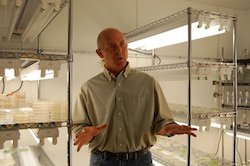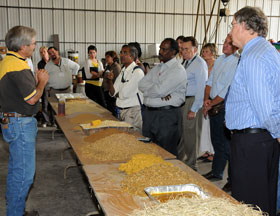 A new report says that diesel’s compatibility with biofuels, especially biodiesel, makes it poised to play a bigger role in the clean fuel options of the future.
A new report says that diesel’s compatibility with biofuels, especially biodiesel, makes it poised to play a bigger role in the clean fuel options of the future.
A new Hart Energy Report, entitled “Diesel: Fueling the Future of a Green Economy,” says “diesel fuel’s unique attributes – its energy density, low-sulfur content, widespread availability and compatibility with biofuels, it is easy to recognize diesel’s emergence as a leading fuel of the future.”
With the United States moving to implement stronger environmental and fuel economy standards and expand the use of renewable fuels, clean diesel fuel is “poised to take on an even greater role in the U.S. transportation market”, according to a newly-released Hart Energy Consulting report.
“While there has been a lot of speculation about the role of unproven energy technologies in the emerging green economy, this new analysis clearly highlights that clean diesel will play a vital role in the green economy both today and in the future generations of energy and transportation,” said Allen Schaeffer, the executive director of the Diesel Technology Forum.
“A search for secure, reliable energy supplies has led policy makers and industry to explore the use of new transportation fuels such as electricity and renewable fuels. Because of diesel fuel’s unique attributes – its energy density, low-sulfur content, widespread availability and compatibility with biofuels, it is easy to recognize diesel’s emergence as a leading fuel of the future,” according to the Hart report (p.5).
“Diesel offers energy and environmental improvement without the need for development of an infrastructure to support the advanced technology. Diesel’s unique capability to utilize a range of renewable fuels and blends enhances its desirability under emerging renewable fuel requirements.” (p.27)
You can read the report for yourself here.








 A
A 
